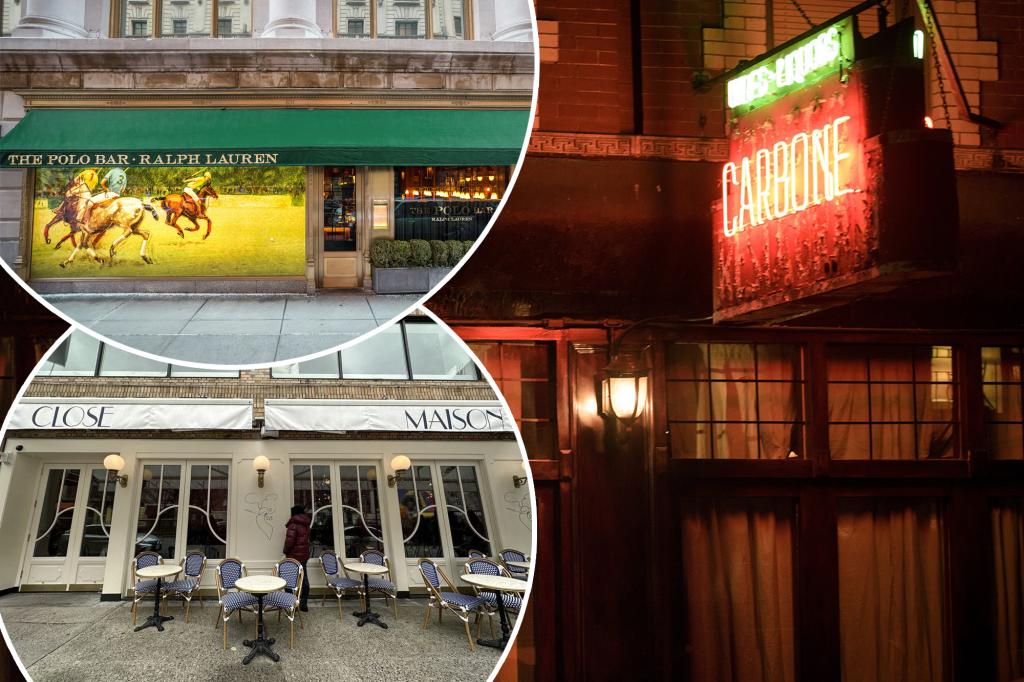Dining out in New York City, especially at high-profile restaurants, has become increasingly competitive as the demand for tables exceeds the supply. An elite network of resellers has emerged, making substantial profits by scalping reservations. Individuals like Alex Eisler, a sophomore at Brown University, have turned booking and reselling reservations into a lucrative business. Using fake numbers and emails, he has made thousands of dollars by securing reservations and then reselling them for profit, sometimes using different accents and personas to avoid detection.
The resale business has become so lucrative that sites like Appointment Trader have reported making millions of dollars by scalping reservations. Tables at popular restaurants like Carbone and the Polo Bar are being resold for hundreds of dollars, attracting even celebrities like Justin and Hailey Bieber, who have reportedly used the backdoor system to secure reservations. Resellers like Nicky DiMaggio have capitalized on this trend, charging fees ranging from $500 to $1,000 to secure reservations for their high-profile clients, potentially earning six-figure profits from reservation sales.
Despite the profitability of the reservation resale business, restaurants are facing challenges due to the rise of scalping. Michelin-starred restaurants like Yoshino and popular establishments like Le Bernardin are being plagued by scalpers who scoop up reservations and resell them for a profit. This trend has led to difficulties for everyday diners, making it harder for them to secure reservations at top restaurants. Celebrity chef Eric Ripert highlighted how his team spends hours trying to track down fake reservations to prevent losses from no-shows, emphasizing the negative impact reservation scalping has on the restaurant industry.
Even smaller and newer restaurants like Roscioli are not immune to the impacts of reservation scalping. Diners are willing to pay significant amounts to secure a table at trendy restaurants, with one individual spending $250 on a resale site to secure a reservation at Roscioli. For some, booking reservations has become a side hustle, with sellers earning thousands of dollars by passively booking reservations while engaging in other activities. Despite the profitability for resellers, the practice has raised concerns among restaurant owners and industry professionals, who see it as detrimental to the accessibility and long-term viability of restaurants in New York City.
The emergence of bots checking for sudden openings at restaurants like the Bangkok Supper Club has further exacerbated the challenges faced by restaurants dealing with reservation scalping. Despite efforts to prevent fake reservations and no-shows, restaurants continue to struggle with the impacts of scalping, with some establishments losing money as a result. The ongoing battle against scalping has led to increased vigilance among restaurant staff, who are constantly monitoring for fraudulent reservations and taking steps to safeguard their businesses. Overall, the rise of reservation scalping poses a significant threat to the restaurant industry, putting pressure on establishments to address the issue and find solutions to ensure fair access to reservations for all diners.


